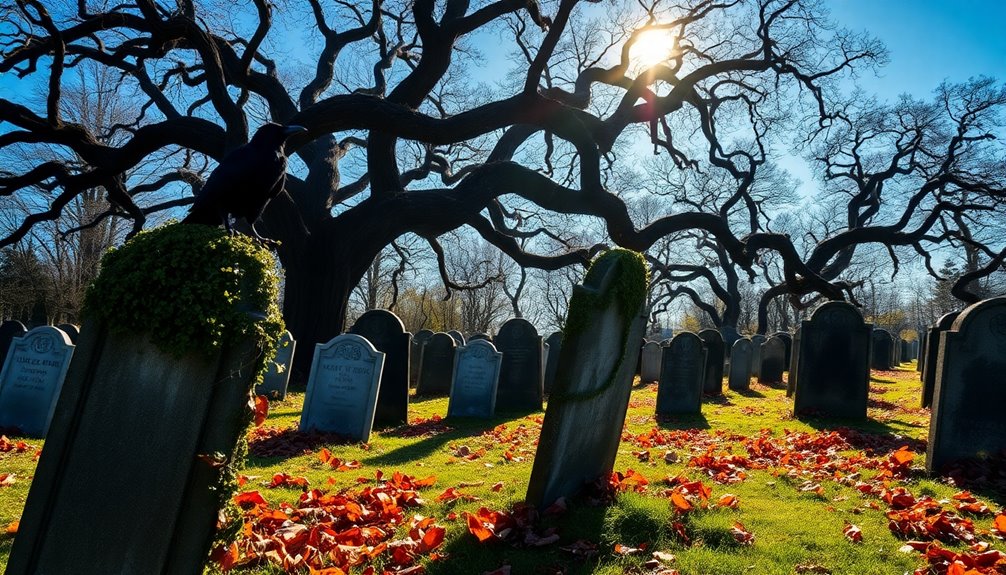"Let the dead bury their dead" emphasizes prioritizing your spiritual journey over worldly obligations. This phrase, rooted in Jesus' teachings from Luke 9:60, urges you not to let cultural customs overshadow your divine mission. The "dead" symbolize those disconnected from God, serving as a reminder to focus on your faith and purpose. First-century burial customs highlight the urgency and respect afforded to the deceased, but they also risk pulling you away from your spiritual commitments. Understanding this teaching can reshape how you view responsibilities and priorities. There's much more to explore about these concepts and their significance.
Key Takeaways
- "Let the dead bury their dead" emphasizes prioritizing spiritual commitments over cultural and familial obligations in following Jesus.
- The term "dead" refers to both physical and spiritual disconnection from God, prompting urgent action towards divine missions.
- Jesus teaches that earthly responsibilities should not hinder the spread of the Gospel, as highlighted in Mark 16:15.
- Jewish burial customs included immediate interment and mourning practices, reflecting deep respect for the deceased and community ties.
- Misunderstandings of burial customs can overshadow spiritual teachings, urging believers to focus on their spiritual journeys.
Introduction
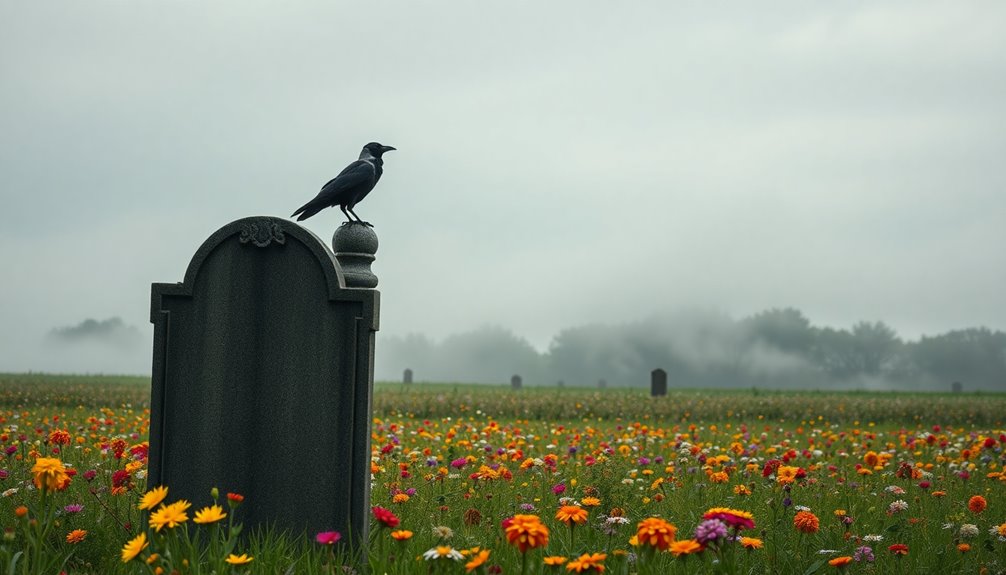
When you encounter the phrase "Let the dead bury their dead" in Luke 9:60, it challenges your understanding of priorities in faith. Jesus' response to the disciple's request to bury his father highlights the urgency of spiritual commitments over cultural and familial obligations. This isn't just a casual remark; it's a radical call to follow Jesus, emphasizing that following Him takes precedence over traditional duties.
In this context, the term "dead" refers to those spiritually disconnected from God. By urging you to let the dead bury their dead, Jesus encourages you to focus on the mission of proclaiming the kingdom of God. It's a stark reminder that earthly responsibilities, while significant, shouldn't overshadow your divine calling.
This teaching reflects the tension you may feel between fulfilling your earthly obligations and adhering to divine commands. It pushes you to evaluate your priorities through the lens of your faith.
The urgency of the Gospel message resonates throughout the New Testament, reminding you of the need to actively participate in spreading the teachings of Jesus. Embracing this call means you're choosing a path that prioritizes spiritual life over the distractions of the world.
Scriptural Basis for Understanding
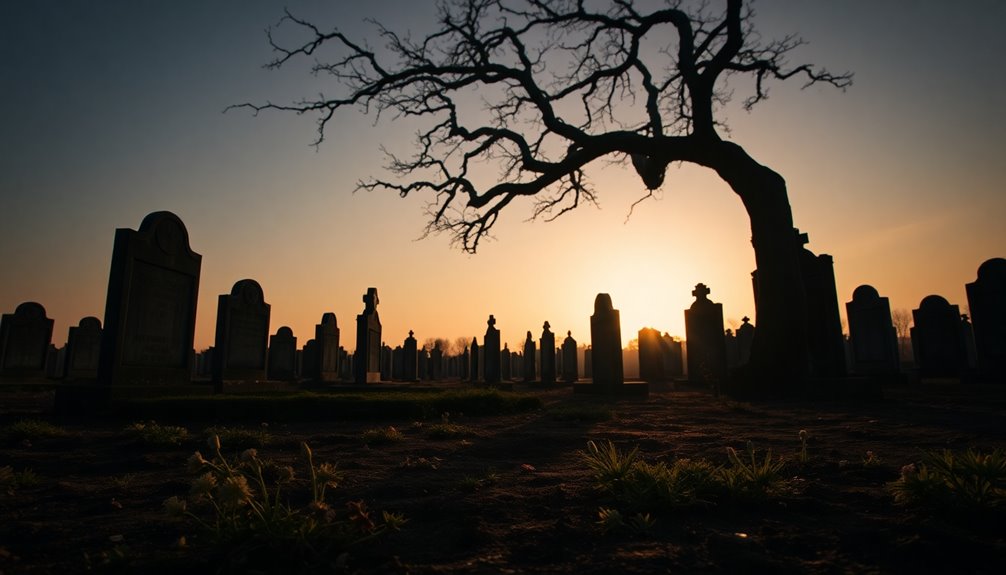
To truly grasp the message behind "Let the dead bury their own dead," you need to explore both primary and secondary Bible references.
These scriptures shed light on the urgency of following God's call and the importance of prioritizing spiritual obligations over cultural norms.
Primary Bible References
The phrase "Let the dead bury their own dead" from Luke 9:60 serves as a striking call to prioritize spiritual commitments over cultural expectations. In this scripture, Jesus emphasizes the urgency of following Him rather than adhering to traditional obligations like burying a family member.
The term "dead" has a dual meaning here: it refers not only to those who are physically deceased but also to those who are spiritually dead—those who lack interest in God's mission.
By using this powerful statement, Jesus challenges you to re-evaluate your priorities. Spiritual commitments, particularly the call to proclaim the Kingdom, should take precedence over earthly concerns. This aligns with other biblical examples, such as Elisha's abandonment of family ties in 1 Kings 19:20-21, where he chose to follow God's call instead of fulfilling familial duties.
The urgency of this message resonates throughout the New Testament, reminding you that the call to follow Jesus requires a radical shift in focus. As you embrace your spiritual mission, consider what it means to let the "dead" attend to their own while you pursue the life and purpose God has for you.
Secondary Bible References
Exploring secondary Bible references deepens your understanding of the call to prioritize spiritual commitments over worldly obligations. In Matthew 8:22, Jesus instructs a disciple to follow Him, emphasizing the urgency of spiritual dedication. This aligns with Ephesians 2:1, where Paul reminds us that believers were "dead in their transgressions and sins," underlining the necessity of a life focused on Christ.
Luke 14:26 further clarifies this message, as Jesus stresses that our commitment to Him should surpass even familial ties. The cost of discipleship is high, and it requires you to place spiritual pursuits above everything else.
In 1 Timothy 5:6, those who live for pleasure are labeled as "dead even while they live," illustrating the distinction between the spiritually alive and the spiritually dead.
Finally, Mark 16:15 encourages you to proclaim the Kingdom of God, urging believers to "go into all the world and preach the gospel to all creation." This active call reinforces the importance of following Jesus, reminding you that your spiritual journey must take precedence over worldly distractions.
Embrace this commitment, and prioritize what truly matters.
First-Century Jewish Burial Customs
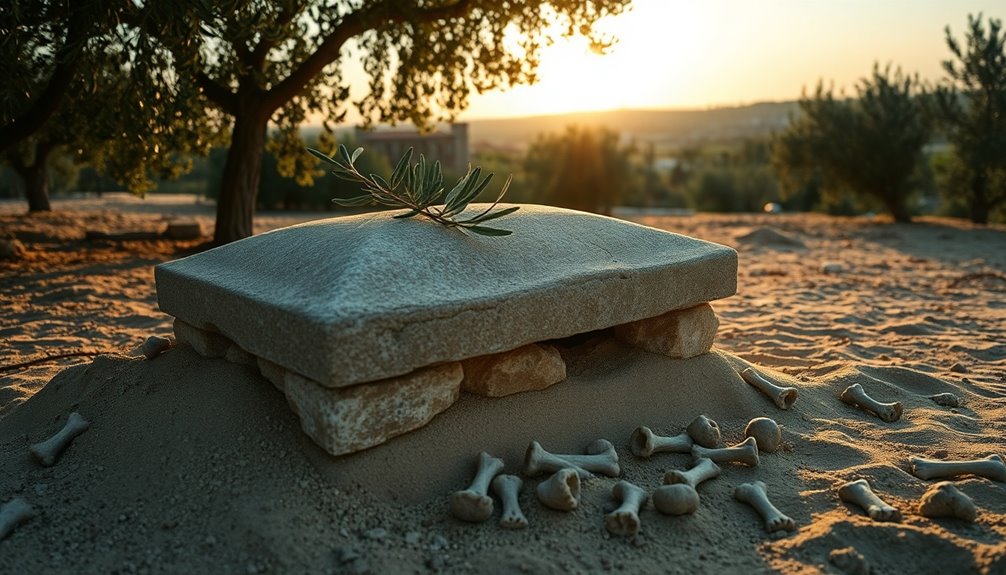
Burial customs in first-century Jewish culture held deep significance, reflecting the community's reverence for life and death. When someone died, the burial took place on the same day, emphasizing the urgency and respect for the deceased. Family and friends played an active role, washing the body and wrapping it in linen, ensuring the proper treatment of their loved one.
After the burial, mourning practices began, with the family entering a formal period known as "shiva," lasting seven days. During this time, they refrained from normal activities, honoring the deceased and allowing their grief to unfold. It was customary for a son to take on the responsibility of burying his father, highlighting the importance of familial duty and respect within Jewish society.
Grave sites were often located outside the city, with tombs or caves used for family burials. This practice not only reflected a connection to one's ancestors but also reinforced the bonds of heritage.
Cultural Significance of Burial
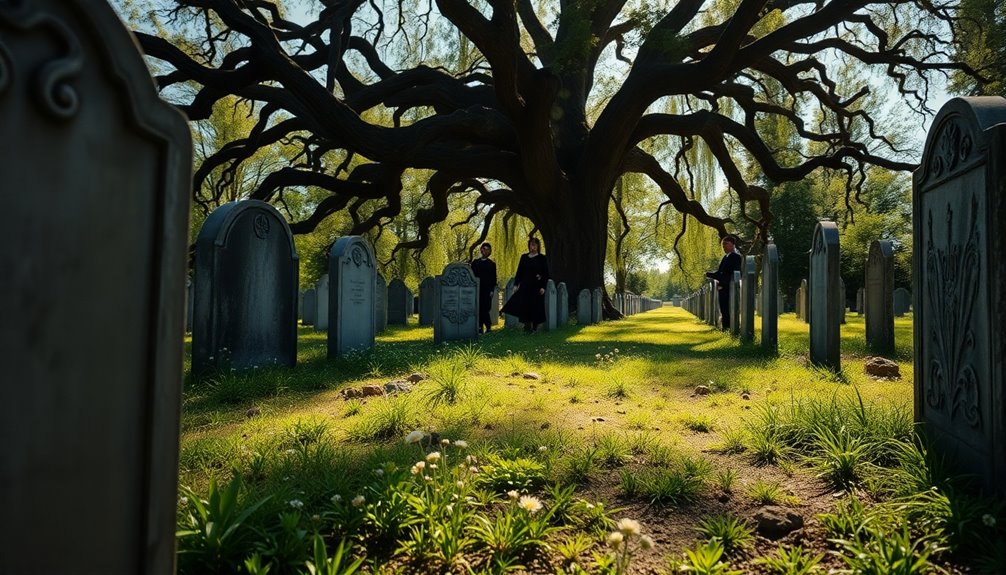
Why do burial practices hold such profound cultural significance in Jewish tradition? In Judaism, burial is more than just a final resting place; it's a sacred duty reflecting deep respect for the dead and their families. When you bury a parent, for instance, it involves a mourning period that can last up to a year, underscoring the importance of familial obligations within the community.
The Mishnah outlines various mourning practices, emphasizing the obligation to provide proper burial, which further illustrates the cultural importance of honoring the deceased.
Burial rites serve a vital role in ensuring the deceased's peace in the afterlife. This belief reinforces the notion that proper funeral practices are essential for the spiritual well-being of the dead.
However, Jesus' urgent message, as conveyed in "Let the dead bury their dead," challenges these deeply ingrained cultural norms. It prioritizes spiritual commitments over traditional family duties, prompting you to reflect on the balance between honoring the dead and pursuing spiritual fulfillment. Additionally, understanding the significance of gaslighting tactics can help individuals navigate complex family dynamics during mourning.
Ultimately, the cultural significance of burial in Judaism highlights a profound respect for life, death, and the responsibilities that bind families and communities together.
Misunderstandings About Burial Practices
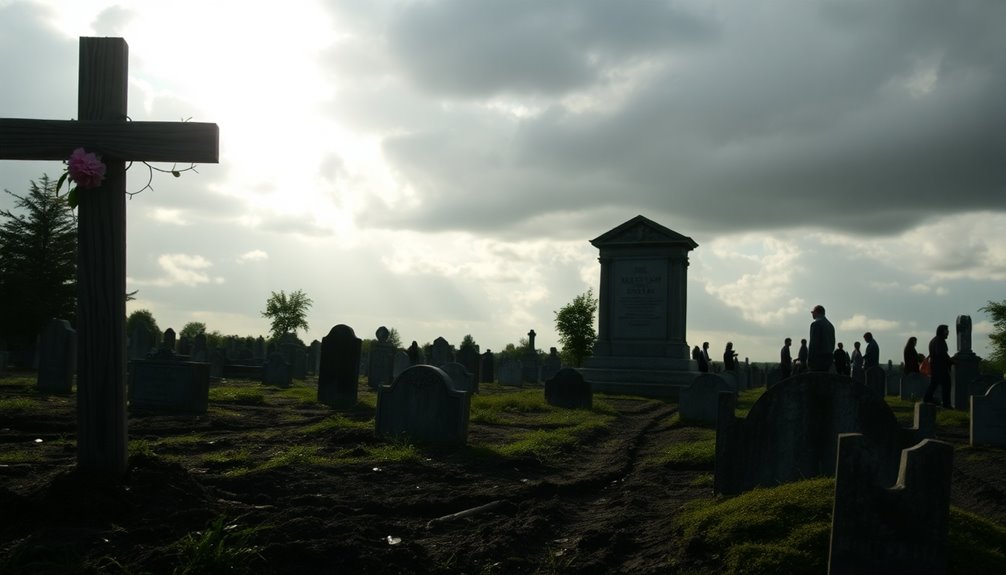
When you think about burial practices, it's easy to assume they're just formalities, but that misses their deeper significance.
In ancient Jewish culture, these rituals were rich with emotional and spiritual meaning, going far beyond mere duty.
Let's unpack some common misconceptions and explore why these practices matter so much.
Debunk Common Burial Misconceptions
Misconceptions about burial practices can obscure the deep cultural and emotional significance these rituals held in ancient societies. Many people think burying the dead is a straightforward process, but ancient Jewish customs reveal a rich tapestry of rituals.
Instead of quick burials, families engaged in extensive mourning periods that could last up to a year. This practice wasn't just about putting someone in the ground; it involved washing and anointing the body, acts that honored the deceased and prepared them for the journey to God's kingdom.
You might also believe that these rituals were merely formalities, but they were deeply intertwined with spiritual beliefs. The act of burying the dead served as a vital connection to the community and family, emphasizing strong ties and obligations considered sacred.
Misunderstanding these practices can lead to seeing the spiritually dead as simply gone, neglecting the emotional and spiritual dimensions of mourning. In ancient cultures, honoring the dead was a profound duty that shaped communal identity and memory, reminding us that the process of saying goodbye is just as important as the act of burial itself.
Cultural Relevance of Burial Practices
How do cultural contexts shape our understanding of burial practices? In many cultures, like Jewish tradition, burial isn't just about laying a body to rest; it's a multifaceted process that reflects deep respect for the deceased.
You see, these practices often involve immediate interment and a year of mourning, underscoring a community's obligations to honor their dead.
Misunderstandings can arise when you consider Jesus' statement about letting the dead bury their dead. This might sound harsh without the context of cultural norms.
In many cases, burying a loved one signifies a long-term commitment to family duties, potentially delaying personal spiritual pursuits. Jesus' words challenge these ingrained practices, suggesting that spiritual obligations should take precedence over cultural rituals.
Community Grief Support Initiatives
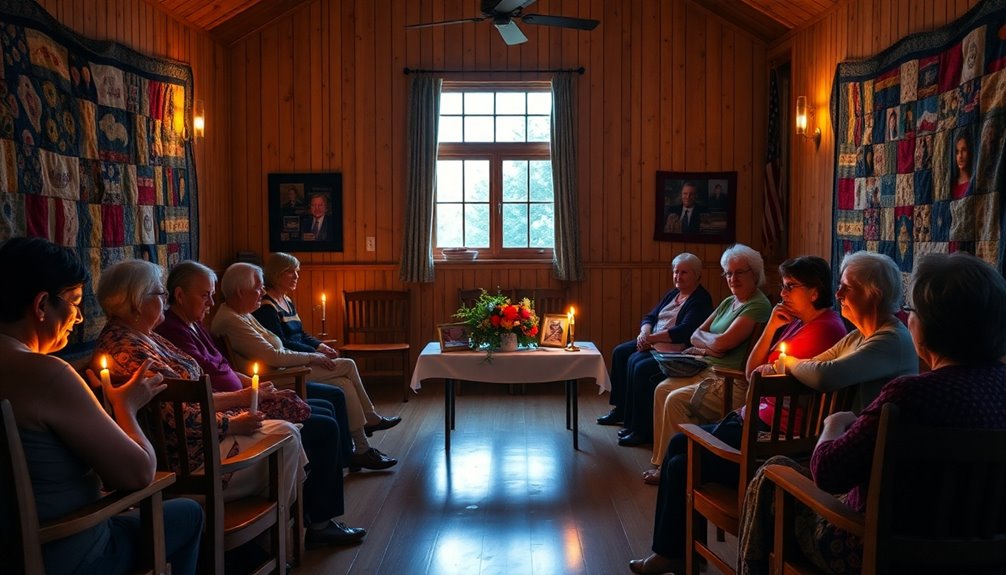
When you experience loss, seeking out community grief support initiatives can be a vital step in your healing journey.
These support groups offer a space to reflect on your grieving process and connect with others who understand your pain.
Engaging in these discussions can help you feel less isolated while providing valuable coping strategies for mourning families. Participating in activities that honor the deceased's interests, such as themed activities, can also create a meaningful way to remember and celebrate their life.
Grieving Process Reflection
Community grief support initiatives serve as vital lifelines for those navigating the tumultuous waters of loss. When you face the grief of losing someone dear, these programs provide a safe space to share your experiences and feelings. You'll find connection and understanding among others who also feel the weight of burying the dead.
Group therapy sessions, led by trained professionals, let you explore your grief in a supportive environment. This can significantly enhance your emotional healing.
Moreover, many initiatives offer educational workshops that equip you with coping strategies, like mindfulness techniques and journaling exercises. You're not alone in this journey; the sense of belonging created in support groups alleviates feelings of isolation, promoting better mental health outcomes and emotional resilience.
Community remembrance events and memorial services allow you to honor your loved ones collectively, reinforcing bonds within the community. This shared mourning experience can bring comfort, reminding you that while the dead may be buried, the love and memories shared continue to thrive.
Embracing these grief support initiatives can be a crucial step in your healing journey, helping you navigate the complexities of loss with compassion and understanding.
Support Groups for Mourning Families
In the aftermath of loss, support groups for mourning families offer a crucial refuge where you can openly share your grief. These groups create a safe and empathetic environment, allowing you to connect with others who truly understand your pain.
Research shows that participating in these support groups can significantly reduce feelings of isolation and depression, fostering emotional healing during a challenging time.
Many community initiatives provide structured programs that include facilitated discussions and workshops on coping strategies. These gatherings not only help you navigate the grieving process but also offer practical advice on handling logistical aspects of grief, such as planning memorial services and managing family dynamics.
Statistics reveal that around 70% of participants in grief support groups report feeling more supported and understood, leading to improved mental health outcomes. Additionally, engaging in healing activities can promote effective co-parenting communication, which is essential for families navigating loss together.
Final Thoughts on Burial Practices
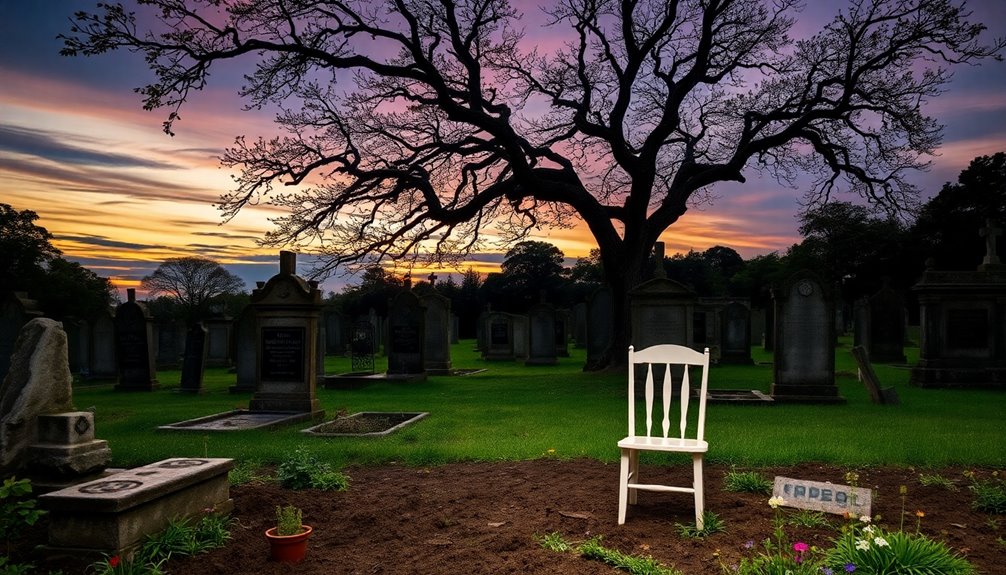
Burial practices hold profound significance across cultures, reflecting deep respect and love for the deceased. In ancient Jewish culture, immediate burial followed by an extensive mourning period demonstrated this reverence. Family members actively participated in the rites, viewing burial as a religious obligation and a profound expression of love.
However, Jesus' teachings introduce a radical perspective on these customs. When He says, "let the dead bury their dead," He emphasizes the urgency of spiritual commitments over traditional burial practices.
This statement challenges your understanding of priorities. It invites you to consider the dual meaning of "dead"—both the physically deceased and those spiritually dead, disconnected from God's mission. Jesus urges you to prioritize your spiritual journey and responsibilities, even when cultural norms insist otherwise.
By encouraging followers to proclaim the Kingdom of God, He underscores the importance of engaging in spiritual pursuits over societal expectations surrounding death. Additionally, understanding the impact of pet therapy can enhance emotional well-being during times of loss and grief.
Ultimately, while burial practices are essential for honoring the deceased, they should never overshadow your spiritual commitments. Embracing this perspective can transform how you navigate grief and honor the legacy of loved ones, focusing on what truly matters.
Additional Resources

Exploring additional resources can significantly enhance your understanding of Jesus' teachings, particularly the profound message behind "Let the dead bury their dead." Websites like BibleGateway.com offer various translations of Luke 9:60, allowing you to examine different interpretations and contexts. By comparing versions like the NIV and KJV, you can grasp how Jesus emphasizes the urgency in His call to discipleship.
To deepen your understanding, consider reading commentaries and theological resources that address the implications of prioritizing spiritual obligations over cultural duties. Daily devotionals on Bible study platforms can provide insights and reflections on how to live out this teaching in today's world.
Additionally, joining online forums or community groups focused on scripture discussions can offer a supportive environment for sharing your experiences with prioritizing faith. Engaging in these conversations can shed light on the struggles of addressing the needs of the spiritually dead while feeling called to go and proclaim the gospel.
Lastly, educational videos and sermons from theologians will help explain the significance of Jesus' teaching in Luke 9:60, reinforcing the necessity of commitment to spiritual pursuits over earthly concerns. Furthermore, exploring concepts such as personalized learning can inspire new ways to apply spiritual lessons in your daily life.
Frequently Asked Questions
What Does It Mean When It Says "Let the Dead Bury the Dead"?
When it says "let the dead bury the dead," it means you should prioritize what truly matters.
The phrase highlights the importance of focusing on spiritual commitments rather than getting caught up in worldly obligations.
It encourages you to recognize that some people are spiritually unaware or detached, and it's your responsibility to engage with your faith and spread the message of hope and purpose, even when traditional practices pull you away.
What Does Let the Dead Past Bury Its Dead Translate To?
When you say, "let the dead past bury its dead," you're encouraging yourself to move on from past mistakes or experiences.
It means you shouldn't dwell on what's already happened; instead, focus on the present and future. Holding onto past regrets can weigh you down.
Who Said "Let the Dead Bury the Dead This Time"?
You might be referring to a line from the play "A Streetcar Named Desire" by Tennessee Williams, where the character Blanche DuBois says, "Let the dead bury the dead this time."
This phrase captures her desire to move on from the past and the pain it brings.
It emphasizes the importance of focusing on the present and future rather than being weighed down by previous losses or regrets.
What Is the Meaning of Luke 9 59 62?
In Luke 9:59-62, Jesus challenges you to prioritize your spiritual commitments over cultural or familial obligations.
He emphasizes that following Him requires immediate action and dedication, even if it means setting aside traditional duties like burying your father.
This passage urges you to reflect on your own priorities and encourages you to actively engage in God's mission, reminding you that true discipleship often demands radical choices that might conflict with societal expectations.

